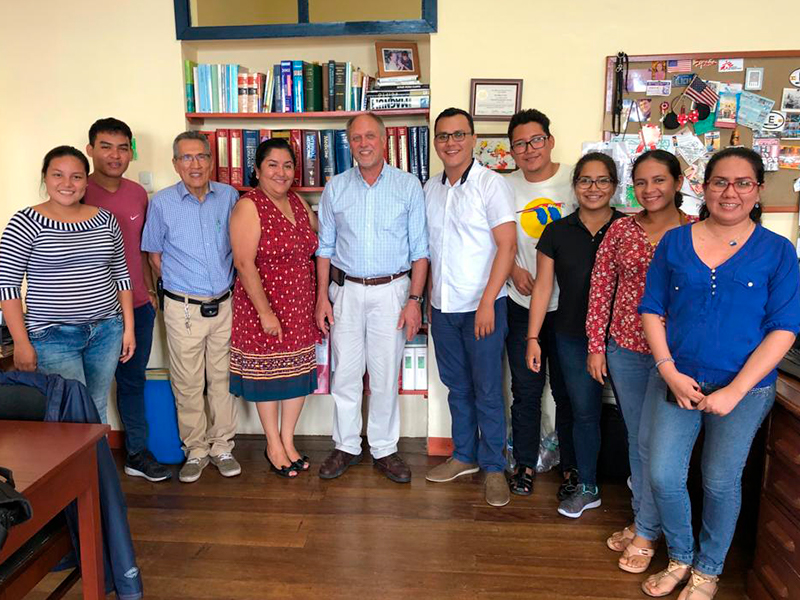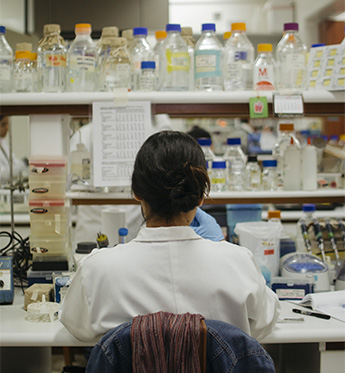PRISMA offered a training program, funded by FOGARTY (NIH- NAtional Institute of HEalth USA) to mentor researchers in public health and infectious disease at the Universidad Nacional de la Amazonía (UNAP) in Iquitos, sponsored by important international universities such as Tulane, Johns Hopkins and Cayetano Heredia University (UPCH ) in Lima.
The Peruvian Amazon jungle is known for the high prevalence of many different tropical infectious diseases, therefore, a great number of research teams from all over the world settle in Iquitos. Most of these investigators are trained in Lima or abroad to do epidemiological research and clinical trials to help understand disease, their prevention, treatment and control such as malaria, zika, dengue, chicungunya, leishmaniasis, micosis, rabies, leptospirosis, shigelosis, among others and also the discovery of new disease agents. This training program “Habilitación de la capacidad de investigación de enfermedades infecciosas en la Amazonía peruana” (Strengthening the research capacity in the Peruvian Amazonian jungle), designed to form local professionals with capacity to do research in public health and tropical infectious disease was aimed to satisfy the need for research and disease control y the Loreto region.
Those graduating from this scholarship can access resources offered by CONCYTEC thanks to the high quality standards of the program. These research resources, usually more available for urban áreas will be made available to graduating professionals for research in the local communities and diseases afecting them.
The training is five years long from July 2018 to June 2023.
| Phases of the training program | |
| Phase 1: Recruitment of trainees | Students interested in participating, presented their application, which the team evaluated. Those preliminary approved go for an interview. The opportunity was published through UNAP usual channels. Six applicants were accepted. |
| Phase 2: Basic/Fundamental formation modules start | Topics for this phase were information to strengthen knowledge about responsible conduct as researchers, public health, scientific writing and enteric disease. |
| Phase 3: Summer training program at JHU (Johns Hopkins University) | Students will travel to participate in the summer course program at Johns Hopkins Bloomberg School of Public Health (JHSPH) in Baltimore, Maryland. |
| Phase 4: SERUMS – Collaborative research program and project | Students return to Iquitos to participate in SERUMS (peri urban and rural health service) working in teams on a community project near Iquitos. |
| Phase 5: Collaborative EID program in Peru UNAP (Masters in Public Health program) | Students who earned the scholarship EID will start their MPH masters at UNAP and will receive several short modules from allied Universities (Tulane, Johns Hopkins, UPCH) |
The last phase of the EID Scholarship (Emerging Infectious Diseases) includes graduation from the UNAP-MPH masters and an international diploma on infectious disease research from the collaborative D43 training program. During this last phase, students will prepare and present a grant to CONCYTEC for funding, and later on become affiliated professors at UNAP.
Training program team:
This Project arises from a great team of professors and researchers that have a long trajectory of collaborative work that is very productive in research of infectious disease and academic training in Peru.
The participatory work between UNAP students with the teachers of this training program will strengthen the quality of research in the area.
The principal investigator and director of this training program is Dr. Richard Oberhelman, pediatrician and specialist in pediatric technology and public health. He is professor and head of the Department of global health and behavioral sciences at Tulane University. With over 30 years of experience, 15 of them in various studies and training programs in Iquitos.
Dra Margaret Kosek (infectious disease researcher from Virginia University with over 20 years of experience working in Peru) shares the local head of the program with Pablo Peñataro Yori. She lived in Iquitos for over 15 years and constructed a laboratory and a clinic in Santa Clara as well as a team of local biologists and laboratory workers that includes Maribel Paredes Olortegui, Dixner Rengifo Trigoso, Francesca Schiaffino Salazar and 15 other workers who have published over 100 papers during recent years on enteric disease, malnutrition, malaria, among other disease. This group of long term collaborators that includes Hermann Silva Delgado and César Ranal Asayag, will bear the main responsibility for coordinating activities related to the training program in Peru and the local collaborators.
UNAP’s principal investigator is Dra. Graciela Meza, physician and principal professor of medicine at UNAP, with a wide experience and knowledge of the health problems in the región and over 23 years of experience at the DIRESA.
We mentor new researchers to improve the health of many people!


